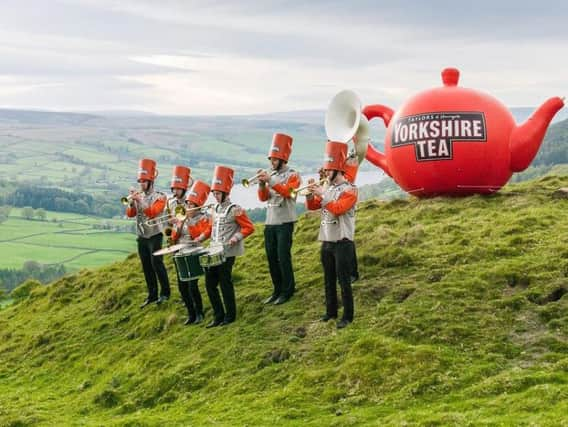Yorkshire Tea's success story is worth celebrating with a brew


How Yorkshire Tea grew from a local brand to be the nation’s cup of teaPG Tips, in case you’re wondering, is still the most popular brew, but not by much. Personally, I went off it when they took those chimps off the TV.
In researching this important story this week (I know my priorities – tea first, Kim Jong-un second) I was surprised to learn that two of the traditional British brands now less popular than Yorkshire Tea, are no longer really British. Ty-Phoo and Tetley are both operated by Indian companies – the latter by the Tata Steel group. Ty-Phoo is still blended on the Wirral; I would like to think that the tea leaves are harvested further afield, but having tried a cup recently, I’m honestly not sure.
Advertisement
Hide AdAdvertisement
Hide AdI have taken an affectionate interest in Yorkshire Tea since 1990, when I made a programme about it for ITV. It was a regional brand then, little known outside the north, so, with the cooperation of its makers, I arranged for a big London advertising agency to create a speculative campaign for it.
Ad agencies in those days were populated by men with coloured braces and big red spectacles, scurrying to meetings clutching leather-bound Filofaxes, which were like smartphones except you could drop them on your foot without breaking anything.
The purpose of our exercise was to see inside their world, while giving them the opportunity to try to avoid patronising the North.
This they failed spectacularly to do. We filmed a “brainstorming” session in their offices on the Hampstead Road. Let’s list the characteristics most associated with Yorkshire, they said, and produced a flip chart and some coloured markers. Sheep, fish, wool, cricket, they wrote down. You can see, can’t you, the process by which Tetleys’ advertising people contrived those “Yorkshire” tea folk.
Advertisement
Hide AdAdvertisement
Hide AdOur presenter was Tony Robinson, now Sir Tony, who surprised himself by being quite readily seduced by the make-believe world the advertising people inhabited. In those heady days of Margaret Thatcher’s me-too economy, we were all seduced, one way or another.
Tony was not then known for making documentaries – this was his first – but for playing the clueless Baldrick on the TV series, Blackadder. He and I had dinner at the Queens Hotel in Leeds, and a waiter who obviously didn’t recognise him but who had been told that there was someone famous at table 12, approached us.
Mistaking me for the famous one, he told me how funny he thought I had been in Blackadder. Some mistake, I said, but Tony was enjoying his night off. “Go on, Dave, give him an autograph,” he insisted. So I signed the menu “Best wishes – Baldrick”.
Tony and I, in aiming our mildly satirical barbs at advertising people, had picked an easy target, for their industry has always played off stereotypes – if not regional then sexual or political.
Advertisement
Hide AdAdvertisement
Hide AdThat is still the case today, as this week’s controversy involving the PR firm Bell Pottinger’s dabbling in South Africa bears witness.
What I learned during the filming was the extent to which these are perpetuated by the advertising industry’s fondness for putting all of us into compartments. The ones that were outlined to me then may be a little outdated, but the essential characteristics remain. We were all, I was told, either achievers or reformers, or else we were among the “struggling poor” or the “resigned poor”. How we chose to see ourselves was not necessarily how the ad people identified us.
In their lexicon, achiever was a euphemism for complacency, reformer for someone who read The Guardian.
Of course, they didn’t use those terms out loud. No agency ever ran an advert that read: “Poor, and resigned to it? Then buy your clothes at Sports Direct.” But that is pretty much what they were thinking.
Advertisement
Hide AdAdvertisement
Hide AdThe success of Yorkshire Tea on the national stage, has, for once, bucked that trend. Consumers have been drawn to its trustworthy provenance and the positive associations that our county name carries. It has been buoyed by advertising and marketing, of course, but done sensitively enough not to dilute its strength with crass clichés.
That, I think, is something we can all drink to.
Read more:
How Yorkshire Tea grew from a local brand to be the nation’s cup of teaWhy building bridges is so good for the Yorkshire countrysideThe Yorkshire Post says: We won't apologise for highlighting worrying trend of suicide in our countyCall for end to suicide stigma after Yorkshire revealed to have highest rate in country for taking own lifeThe worrying numbers that show Yorkshire has highest suicide rates in the country